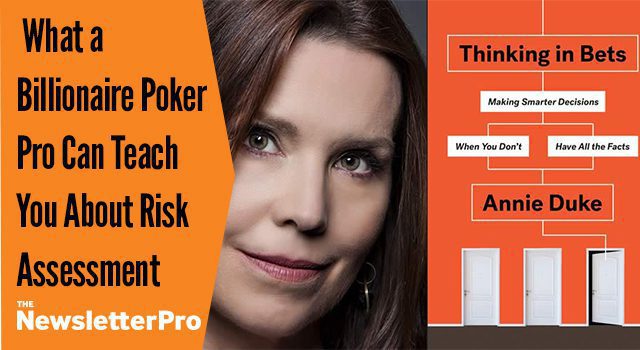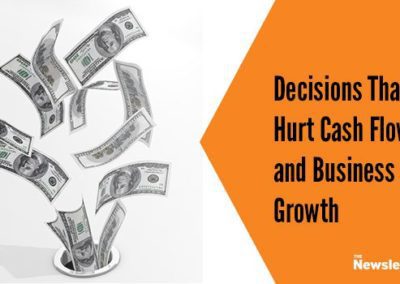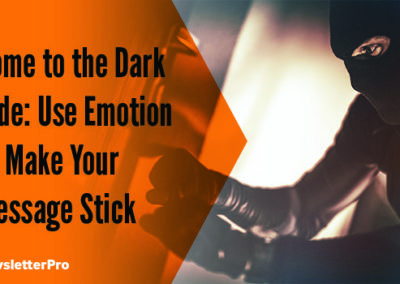Annie Duke may be a world-class poker player, but “Thinking in Bets: Making Smarter Decisions When You Don’t Have All the Facts” is by no means a book that’s going to teach you what to do at the tables. Rather, it’s a risk assessment guide that will benefit businesses of all sizes. In addition to winning millions (no joke!) in poker, Duke has studied at the University of Pennsylvania and consulted for numerous businesses. Her decision-making skills have been tested at the highest stakes both in the boardroom or the poker room.

Why Business Is Like Poker
 When you think about it, poker is a perfect metaphor for the process of making business decisions. No matter how much information you gather, you’ll never know what your opponent is holding until the hand is over. The same goes for venturing into a new business practice or endeavor. You might be able to limit uncertainty, but you’ll never be able to get rid of it entirely.
When you think about it, poker is a perfect metaphor for the process of making business decisions. No matter how much information you gather, you’ll never know what your opponent is holding until the hand is over. The same goes for venturing into a new business practice or endeavor. You might be able to limit uncertainty, but you’ll never be able to get rid of it entirely.
“Thinking in bets starts with recognizing that there are exactly two things that determine how our lives turn out: the quality of our decisions and luck,” Duke writes. She argues that we are prone to underestimating the effect luck has on outcomes. When something goes wrong, it’s because we made a bad choice. But that’s not always the case. Sometimes you make the best decision given the information at hand, and the result doesn’t end the way you wanted.
Another important poker concept is the decreasing impact of luck as a sample size increases. Over the course of one hand, the influence of skill is minimal. That means a pro player doesn’t have much of an advantage over the average jamoke off the street. Compare that to a sample size of 1 million hands, where luck has less of an impact, and the pro player will perform significantly better.
That’s exactly how business works. Every single entrepreneur fails, makes bad decisions, etc. It’s impossible not to. Understanding that failure is part of the program will help you overcome doubt and keep you from letting your dreams die early. Anybody — even the smartest business owners in the world — can make the wrong decision. It’s the larger patterns over the course of a career (the business version of sample size) that matter much more than how each single decision plays out in isolation.
How to Start Thinking in Bets
 Duke suggests focusing on your decision-making process and account for luck rather than ignoring it. “Improving decision quality is about increasing our chances of good outcomes, not guaranteeing them,” she writes. After all, if you aren’t willing to risk a bad outcome, you’ll never take the risks needed to grow your business. As the old saying goes, nothing ventured, nothing gained.
Duke suggests focusing on your decision-making process and account for luck rather than ignoring it. “Improving decision quality is about increasing our chances of good outcomes, not guaranteeing them,” she writes. After all, if you aren’t willing to risk a bad outcome, you’ll never take the risks needed to grow your business. As the old saying goes, nothing ventured, nothing gained.
It’s easy to have revisionist memory and assume that all your good decisions were the result of savvy and the bad ones were the result of luck. Duke puts the sword to this fallacy. She reminds readers that luck is always in play, that we never have total control over our destiny. Instead of ignoring the factors we can’t control, Duke advises that we gain as much information as possible, assess the decision as if it were a wager, and make the best decision we can. The results may not always be optimal, but focusing on our process is the surest way to improve our decision-making skills. Over time, the business owners who make the best decisions outpace those who just get lucky, just like the pros school the fish when more hands are played.
When somebody puts $1,000 dollars on the table and you have a 90 percent chance of collecting it, is that 10 percent going to scare you away? If so, you might want to read “Thinking in Bets” and reassess your decision-making process. After all, the life of your company depends on the decisions you make.






